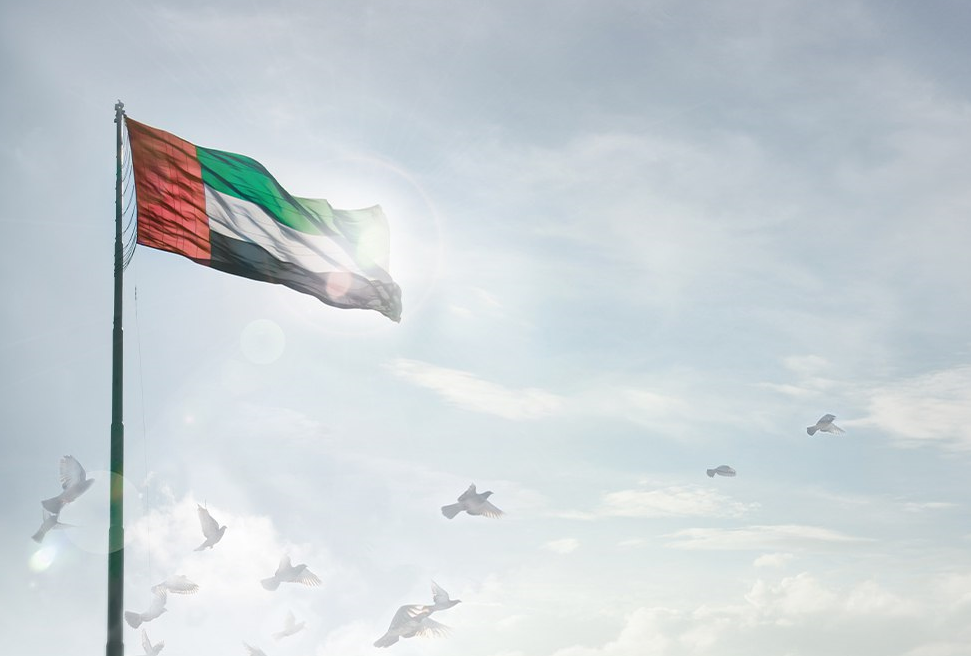Millions of people from various faiths and religions visit the UAE to spend their holidays, due to its respect, equality and coexistence, which are major characteristics of the country and its citizens and residents.

The UAE is currently witnessing a significant flow of tourists spending Christmas and New Year, as festive environments are present in its hotels, shopping malls and entertainment facilities.
The freedom to celebrate different religious occasions highlights the UAE’s moderation and coexistence, and the country has led the region in drafting legal frameworks, policies and procedures aimed at ensuring the freedom to practice religious rituals for people from all faiths, as well as the construction of temples, churches and other places of worship.
The country has been a global pioneer of peaceful coexistence between peoples from different faiths since the era of the Founding Leader, the late Sheikh Zayed bin Sultan Al Nahyan. In 2002, Sheikh Zayed financed the restorations of the Mosque of Umar bin Al Khattab in Jerusalem and the Church of Nativity in Bethlehem.
The unanimous decision of the United Nations on Tuesday stipulates that 4th February will be observed annually as the International Day of Human Fraternity starting in 2021, as a global recognition of the validity of the UAE’s vision that considers human fraternity as a way of achieving global stability, ending conflicts, and promoting coexistence and tolerance, which are the values that established the concept of human fraternity that led to the signing of the Human Fraternity Document by Pope Francis, Head of the Catholic Church, and Dr. Ahmed Al Tayyeb, Grand Imam of Al Azhar, in Abu Dhabi in February 2019.
The UAE, which was the first country in the world to allocate a year for tolerance in 2019, has places of worship for all religions and faiths coexisting together in a harmonious tolerant environment. The UAE also has some of the oldest historic religious landmarks in the Arabian Peninsula, most notably the old town of ed-Dur in Umm Al Qaiwain, which was discovered 30 years ago, as well as the church and monastery of Bani Yas that dates back to the 7th and 8th centuries. In the modern era, many churches and places of worship were constructed in the UAE, including the St.Joseph’s Cathedral – Abu Dhabi, which was established in 1965, in addition to a Hindu temple in 1958 in Dubai Creek.
The UAE declared the establishment of the “Abrahamic Family House,” which will comprise a church, a mosque and a synagogue under one establishment, to form a community where followers of Abrahamic faiths can share ideas and opinions.
The country has adopted several steps to promote tolerance as a mutual language and social culture, including by drafting an anti-discrimination law that prohibits all forms of religious discrimination.
In 2016, the Ministry of Tolerance was established, and His Highness Sheikh Mohamed bin Zayed Al Nahyan, Crown Prince of Abu Dhabi and Deputy Supreme Commander of the UAE Armed Forces, ordered the renaming of the Sheikh Mohamed bin Zayed Mosque in Al Mushrif to the “Mary, the Mother of Jesus Mosque.”
The UAE established the “International Institute for Tolerance,” hosted conferences and summits attended by international religious figures, and launched the Zayed Award for Human Fraternity to honour individuals and organisations that promoted human fraternity in their communities and around the world, as well as launched the Zayed Global Fund for Coexistence.
As part of a significant initiative to strengthen tolerance and coexistence in the UAE, Abu Dhabi Airports inaugurated a multi-faith prayer room that enables passengers from all faiths to practice their religious rituals.












